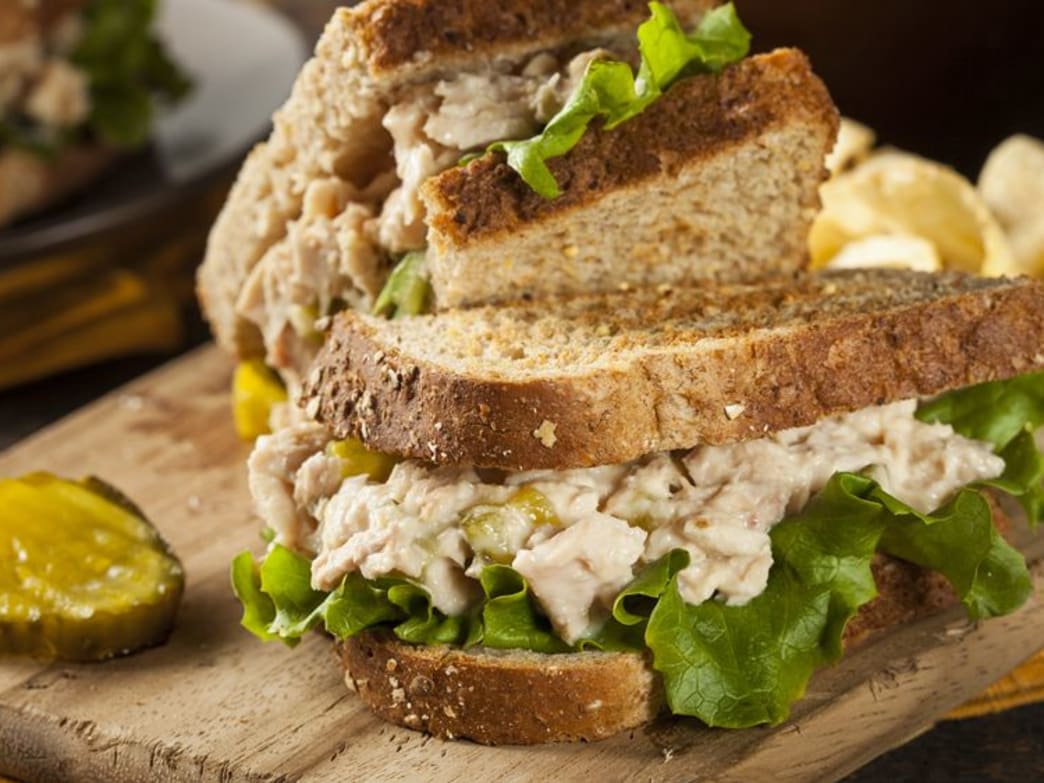What to eat and when to eat it to get the most from your training session
If you’re anything like us, once you’ve powered through the final few reps of your workout your mind quickly turns to what you’re going to eat after your session. In fact, our mind tends to focus on that for most of the second half of our workouts, especially if they’re at lunchtime.
What you eat after you’ve finished needs to be both satisfying and support your efforts, because you deserve a reward but also want to give your body the fuel it needs to rebuild and recover.
For all the key info you need on what to eat after a workout here’s Georgina Camfield, Registered Associate Nutritionist at AXA PPP healthcare.
What are the macronutrients you need after a training session?
The three macronutrients are fat, protein and carbohydrate, and commonly we place a lot emphasis on protein. That is very important – it is needed after a session to repair the muscles and also for muscle growth. However, we also need carbohydrates because they stimulate insulin, which is needed to take up protein into the muscles. So without the carbohydrates we don’t take in that protein as efficiently. Fats don’t play as much of an important role, so the focus is on a mix of protein and carbohydrate.
How quickly after a workout should you eat?
Ideally within 45 minutes. The sooner the better.
If you’re training a few times a week, do you need to consider what you eat after a workout?
If you want to get the most out of your workouts then fuelling efficiently before and after exercise is going to have benefits, whether you’re training every day or just a few times a week.
How much protein should you have after a workout?
The most efficient amount in terms of uptake into the body is 20-25g. Any more than that is going to go to waste – our body isn’t going to take it in. Rather than having a bigger block of protein later, you’re better off having that 20-25g straight after and then spreading similar portion sizes throughout the day afterwards.
Should you vary what you eat depending on the kind of workout you do?
If you’re burning more calories by doing a higher-intensity workout, you might need to increase your calorie intake a little bit to replenish your stores. If you’re focusing on building muscle mass then you might need a little more protein, and if you’re training for endurance events you would place more emphasis on carbohydrates.
Should you stick to real food if possible or use supplements?
The main benefits of supplements are that they’re quick and easy, particularly if you’re pushed for time after a workout, or you can’t store food throughout the day. However, I’m a big promoter of real food. The benefit is that you’re going to get a lot more nutrients – a wider variety of vitamins and minerals – that you’re not going to get from a protein shake.
Another benefit of supplements is when you’re training multiple times a day. If you have less than six hours between training sessions, then protein shakes can be an efficient way to get that fuel in.
Should what you eat differ depending on the time you train?
The same things can be used any time, but it depends on personal preference. You might not want to eat a tin of tuna at eight o’clock in the morning – you might go for Greek yogurt instead.
Do you need to also consider what you drink?
Just hydrating with water is going to be best. That is one benefit of having a shake rather than food – you’re getting some liquid as well. Isotonic drinks aren’t really needed if you’re eating. Quite often isotonic drinks like Lucozade can add in unnecessary calories.
Written by Nick Harris-Fry for Coach and legally licensed through the Matcha publisher network. Please direct all licensing questions to legal@getmatcha.com.

